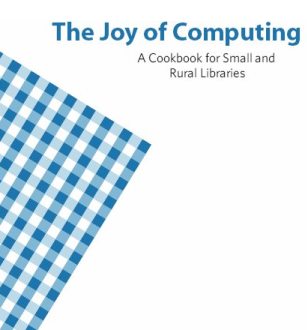Aug
06

Posted by Patricia Devine on August 6th, 2007
Posted in: News From NNLM PNR, Training & Education

TechSoup.org, “The Technology Place for Non-Profits” has released a free guide with practical tips and stories from small and rural libraries about keeping public computers available.
According to Chris Peters on the Washington State Library Updates Mailing List, “The Joy of Computing is an eighty page cookbook on the ins and outs of providing computing resources for patrons in small and rural libraries. Concise and easy-to-read (lots of lists and headings and links to further resources), the cookbook discusses fundraising and budgeting, IT planning, training for staff and patrons, and how to recruit and supervise technology volunteers. Furthermore, there’s a wealth of information on computer maintenance and security. The Joy of Computing is available for free download.”
Sample Tips from “The Joy of Computing”:
Short on space? Build a mobile computer lab.
The Colorado River Indian Tribes Library, located in Parker, AZ, currently has five public-access computers that are networked and equipped with a high speed DSL Internet connection. The library hopes to expand its lab by adding new machines, but its facilities are too small to accommodate any extra computers. To help solve this lack-of-space problem, Gil Harper — The Colorado River Indian
Tribes Library’s Computer Technology Specialist — devised the idea of a mobile computer lab, which would house nine wireless laptop computers. According to Harper, a mobile computer lab would not only give the library more room for computers, but would also bring technology to community residents who can’t travel to the library …
Convert your old computers into thin clients to squeeze life out of them.
Your library’s old computers may not be able to run the latest version of Windows, but they’re not junk! In fact, Kinney County Public Library in Brackettville, Texas, with the help of IT consultant Rodney Greensage was able to add eight computers to its lab using systems that would have been destined for the junkyard. By converting your computer network into what’s called a thin client (a network computer without a hard drive that runs its programs from a server), the libraries were able to squeeze life out of old computers and save money at the same time …